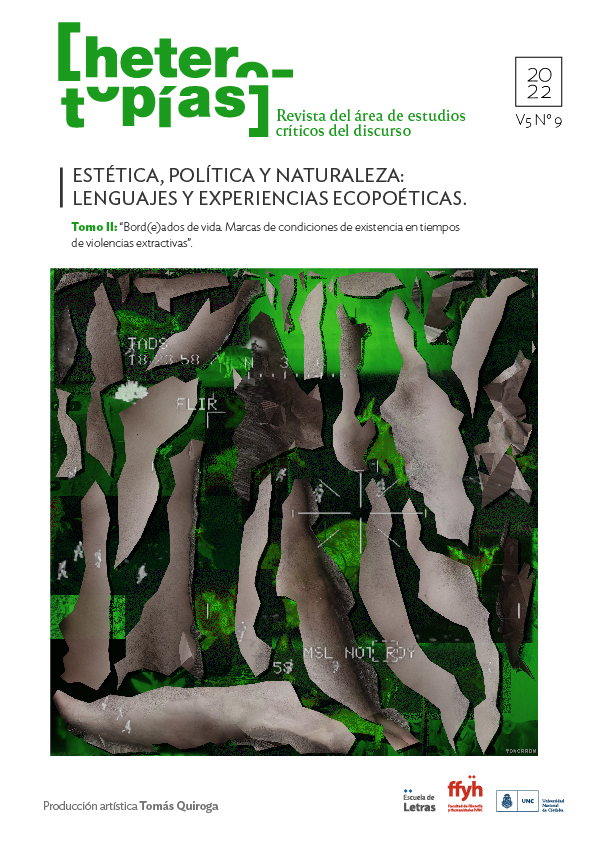Organic methodology and feelthink machines
Main Article Content
Abstract
In this article we will analyze the organic methodology of Iconoclasistas, a non-methodical method that consists of a set of cognitive artifacts, powerful in their simplicity and sustainable in their activation and analog dynamization. These are living tools, coupled with the dynamism of territorial processes and adaptable to the challenges imposed by the tactical perspective on each territory. We will go through the variants of this epistemological proposal to focus on the ways of doing, their ethical and aesthetic practices and the leading role those graphic artifacts were acquiring in the invention of moments of reflection and creation of collective knowledge.
First of all, we will describe the activation of collective mapping workshops, a space of popular hermeneutics that is constituted from the dialogue between central and peripheral knowledge, within the framework of a strongly visual register. The creation of maps collectively allows us to trace new paths, break down hegemonic stories and orient ourselves to build new narratives, as an expanded way of reading the world strategically and interpreting it. Next, we will reflect on new dimensions of work that Iconoclasistas have been incorporating in recent years. We refer to a set of playful tools, graphic resources or visual elements called feelthink machines; a set of geometric diagrams of simple design, optimal to promote reflection and organize collective knowledge in workshop spaces. These diagrams are crystallized in schemes to be completed individually or collectively and from various dynamizations, and cover a series (in permanent growth) that adjusts to the reflective contexts and objectives of the workshop. Finally, we will identify a series of challenges and obstacles that may appear during the development of collaborative research spaces.
Downloads
Article Details

This work is licensed under a Creative Commons Attribution-NonCommercial-ShareAlike 4.0 International License.
Those authors who have publications with this journal, accept the following terms: Those authors who have publications with this journal, accept the following terms:
a. The authors will keep their copyright and guarantee to the journal the right of first publication of their work, which will be simultaneously subject to the Creative Commons Attribution - Non-Commercial - Share Alike (by-nc-sa) Attribution License; no commercial use of the original work or any derivative works is allowed, the distribution of which must be done with a license equal to the one that regulates the original work.
b. Authors may adopt other non-exclusive license agreements for the distribution of the published version of the work (e.g., deposit it in an institutional telematic archive or publish it in a monographic volume) provided that the initial publication in this journal is indicated.
c. Authors are allowed and recommended to disseminate their work through the Internet (e.g. in institutional telematic archives or on their website) before and during the submission process, which may lead to interesting exchanges and increase the number of citations of the published work. (See The effect of open access).
References
Benjamin, W. (2018). Tesis sobre el concepto de historia y El surrealismo. La última instantánea de la inteligencia europea. Iluminaciones (pp. 214-222 y pp. 38-48). Barcelona: Penguin Random House Grupo Editorial.
De Souza Santos, B. (2010). Descolonizar el saber, reinventar el poder. Uruguay: Ediciones Trilce.
Femenías, M. L. (2017). Epistemología feminista: la falacia del conocimiento objetivo. Revista Arpège - Réseau Genre, société et politique d’égalité. Recuperado de https://streaming-canal-u.fmsh.fr/vod/media/canalu/documents/utm/epistmologia.feminista.la.falacia.del.conocimiento.objetivo.maria.luisa.femenias_34761/texte.conference.epistemologia.feminista.ml.femenias.esp.pdf
Grosfoguel, R. (2016). Del «extractivismo económico» al «extractivismo epistémico» y al «extractivismo ontológico»: una forma destructiva de conocer, ser y estar en el mundo. Tabula Rasa, (24), 123-143.
Haraway, D. (1995). Conocimientos situados: la cuestión científica en el feminismo y el privilegio de la perspectiva parcial. Ciencia, cyborgs y mujeres. La reinvención de la naturaleza (pp. 313-346). Madrid: Cátedra.
Fals Borda, O. (1979). Por la praxis: El problema de cómo investigar la realidad para transformarla. Bogotá: Tercer Mundo.
Freire, P. (1986). Hacia una pedagogía de la pregunta. Conversaciones con Antonio Faúndez. Buenos Aires: Ediciones La Aurora.
Fricker, M. (2017). El poder y la ética del conocimiento. Barcelona: Herder.
Lizaraso, D. (Productor). (2017). Orlando Fals Borda: la verdad sentipensante. [Archivo de video]. Recuperado de https://www.youtube.com/watch?v=ObBk5lxYSok
